
Benin City: The Heartbeat of Nigeria's Cultural Heritage
Benin City, the capital of Edo State in southern Nigeria, is a place where history and culture converge. Known for its rich heritage, this city is a treasure trove of ancient art, traditional crafts, and vibrant festivals. One of the most compelling attractions is the Benin Bronzes, a collection of intricately designed bronze sculptures that date back to the 13th century. These masterpieces provide a glimpse into the artistry and advanced metalworking skills of the Benin Kingdom. Take a stroll through the National Museum of Benin City to dive deeper into the city's storied past. Here, you will find artifacts and exhibits that tell the tale of the Benin Empire, one of the oldest and most developed states in West Africa. The Oba's Palace, another must-see, stands as a testament to the monarchy that still plays a significant role in the community today. The palace, an architectural marvel, is often the center of local festivities and ceremonies. Nature lovers will also find solace in Benin City's serene parks and lush gardens. The Ogba Zoo and Nature Park is perfect for families, offering a peaceful escape with opportunities to see various wildlife. Meanwhile, the bustling markets, such as Oba Market, provide a sensory overload of sights, sounds, and smells, offering everything from fresh produce to traditional crafts. Whether you are a history buff, an art lover, or simply in search of an authentic Nigerian experience, Benin City has something for everyone.
Local tips in Benin City
- Visit the National Museum early in the day to avoid the crowds and to have ample time to explore the exhibits.
- Hire a local guide to take you through the Oba's Palace for a more enriching experience.
- Carry cash as many local markets and smaller shops do not accept credit cards.
- Try the local delicacies such as pepper soup and pounded yam at one of the city's traditional restaurants.
- Wear comfortable walking shoes as you will spend a lot of time exploring on foot.
Benin City: The Heartbeat of Nigeria's Cultural Heritage
Benin City, the capital of Edo State in southern Nigeria, is a place where history and culture converge. Known for its rich heritage, this city is a treasure trove of ancient art, traditional crafts, and vibrant festivals. One of the most compelling attractions is the Benin Bronzes, a collection of intricately designed bronze sculptures that date back to the 13th century. These masterpieces provide a glimpse into the artistry and advanced metalworking skills of the Benin Kingdom. Take a stroll through the National Museum of Benin City to dive deeper into the city's storied past. Here, you will find artifacts and exhibits that tell the tale of the Benin Empire, one of the oldest and most developed states in West Africa. The Oba's Palace, another must-see, stands as a testament to the monarchy that still plays a significant role in the community today. The palace, an architectural marvel, is often the center of local festivities and ceremonies. Nature lovers will also find solace in Benin City's serene parks and lush gardens. The Ogba Zoo and Nature Park is perfect for families, offering a peaceful escape with opportunities to see various wildlife. Meanwhile, the bustling markets, such as Oba Market, provide a sensory overload of sights, sounds, and smells, offering everything from fresh produce to traditional crafts. Whether you are a history buff, an art lover, or simply in search of an authentic Nigerian experience, Benin City has something for everyone.
When is the best time to go to Benin City?
Iconic landmarks you can’t miss
Filmhouse Cinemas Benin
Discover the magic of movies at Filmhouse Cinemas Benin – your ultimate destination for entertainment in Edo State.
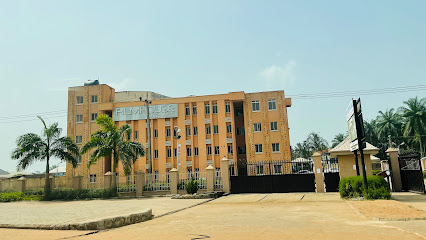
Kada Plaza Cinema & Entertainment Centre
Discover the ultimate entertainment experience at Kada Plaza Cinema & Entertainment Centre in Benin City, featuring movies, dining, and arcade fun.
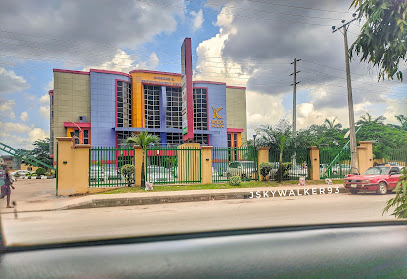
Benin City Airport
Discover the heart of Edo State through Benin City Airport, your key to exploring Nigeria's rich culture and heritage.
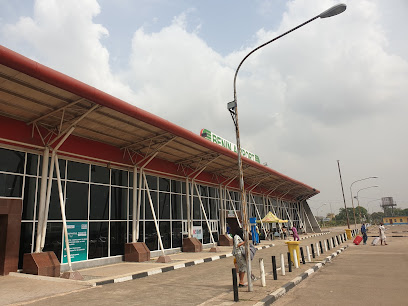
National Museum Benin City
Explore the National Museum Benin City, where the rich history and cultural heritage of the Benin Kingdom come alive through fascinating artifacts and exhibits.
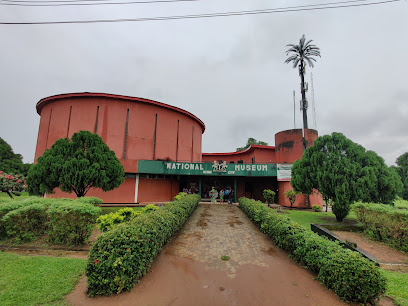
Ogba Zoo, Benin City.
Discover the vibrant wildlife and lush landscapes of Ogba Zoo, a must-visit attraction in Benin City for nature lovers and families.
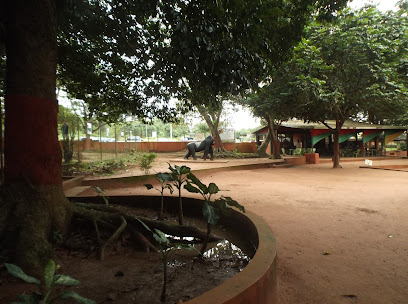
Alims Concept
Experience the vibrant blend of sports and sweet treats at Alims Concept, a unique stadium and cake shop in Benin City.
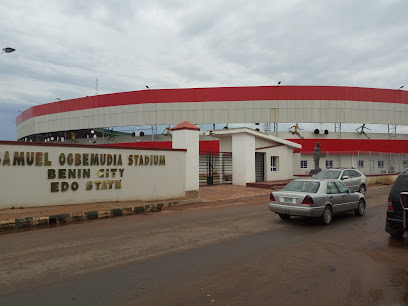
Oba Palace
Explore the Oba Palace: A Cultural Landmark Unveiling the Rich Heritage of Benin City and the Edo People.
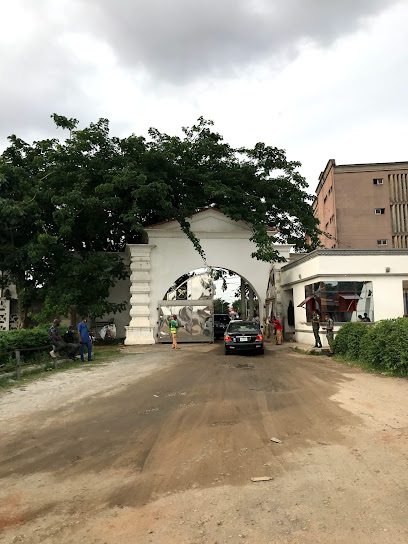
ekiosa market
Discover the vibrant atmosphere and local flavors at Ekiosa Market, Benin City's bustling hub for culture, crafts, and culinary delights.
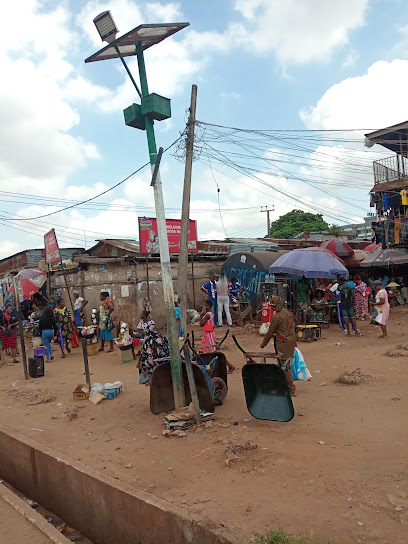
St Paul Catholic Church Benin City
Discover the architectural beauty and cultural significance of St Paul Catholic Church in Benin City, a true gem for travelers seeking spiritual and historical experiences.
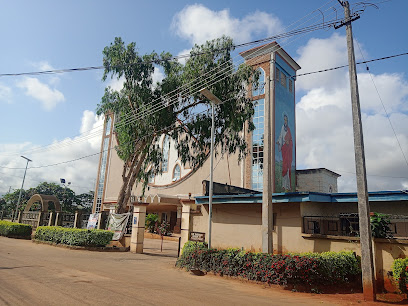
VICE CITY
Discover the nightlife of Benin City at VICE CITY, where vibrant drinks and lively entertainment create unforgettable memories.
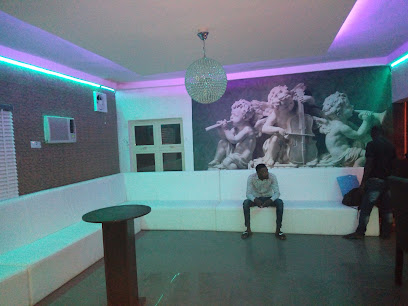
Kateri's Bamboo House (Restaurant)
Explore the exquisite flavors of Asian cuisine at Kateri's Bamboo House, a culinary gem in Benin City offering a delightful fusion of Chinese and Indian dishes.
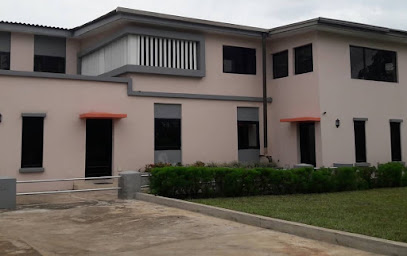
Benin Central Park
Experience the tranquility and beauty of Benin Central Park, a green oasis in Benin City perfect for relaxation and recreation amidst nature.
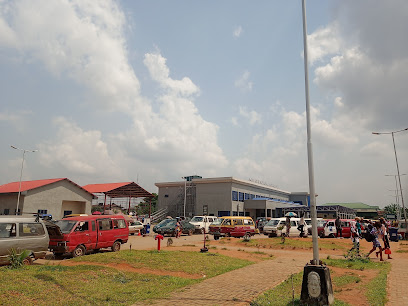
The Tavern Benin City
Experience the vibrant nightlife and delicious barbecue at The Tavern Benin City, the ultimate leisure destination in Edo, Nigeria.
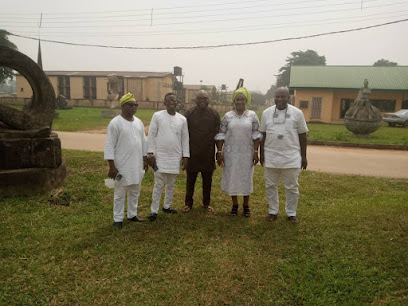
Christ Embassy Erediauwa Benin City
Discover spiritual enrichment and cultural connection at Christ Embassy Erediauwa, a vibrant Christian church in Benin City, Nigeria.
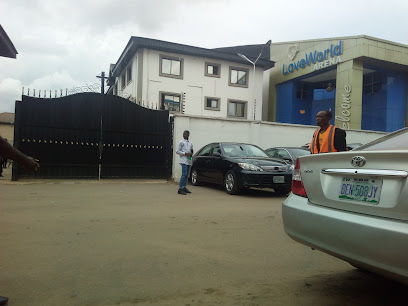
Uyi Grand Marquee
Discover Uyi Grand Marquee in Benin City, the ultimate venue for weddings and events, blending elegance and modern amenities for unforgettable experiences.
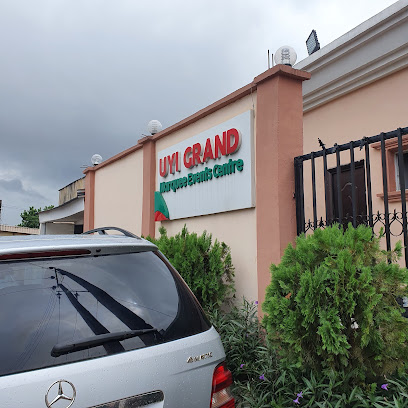
Unmissable attractions to see
National Museum Benin City
Discover the treasures of the Benin Kingdom at the National Museum in Benin City, a cultural hub showcasing Africa's rich heritage.
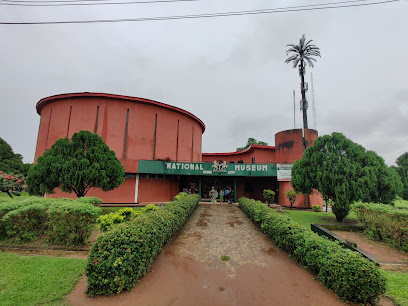
Ogba Zoo, Benin City.
Explore the vibrant wildlife and lush landscapes of Ogba Zoo in Benin City, a family-friendly destination for nature lovers and animal enthusiasts.
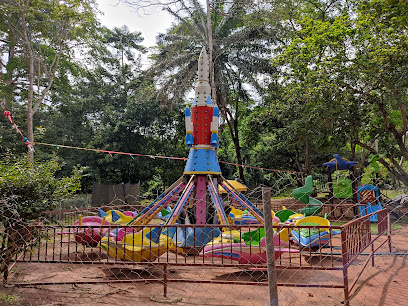
Oba Palace
Explore the majestic Oba Palace in Benin City, a cultural landmark rich in history and tradition, reflecting the royal heritage of Nigeria's Edo State.
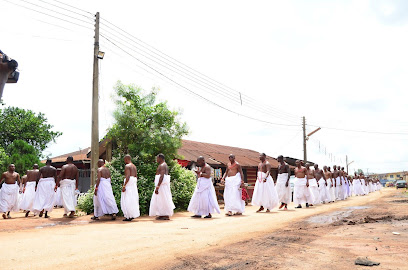
Agbor Park
Discover the serene beauty of Agbor Park in Benin City, a perfect blend of nature, relaxation, and local culture. A must-visit for every tourist.
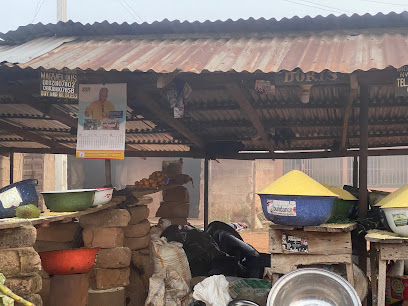
BIU Love garden
Explore BIU Love Garden in Benin City, a tranquil park perfect for nature lovers and those seeking peace amidst vibrant surroundings.
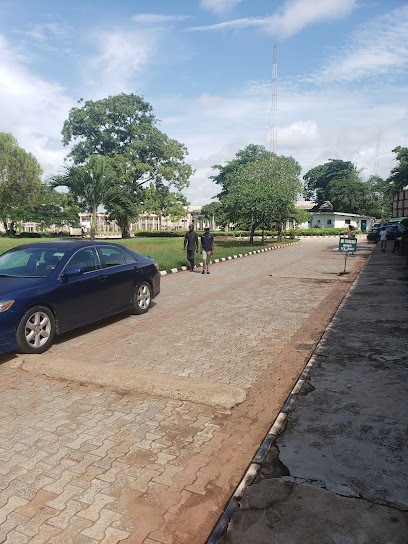
Okomu National Park
Discover the Natural Wonders of Okomu National Park - A Biodiversity Paradise in Nigeria's Lush Wilderness.
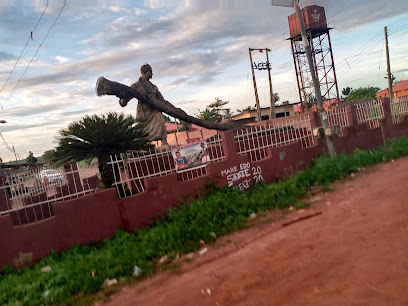
Ogiamien Palace
Discover the historical significance and cultural richness of Ogiamien Palace in Benin City, a must-visit for all tourists exploring Edo heritage.
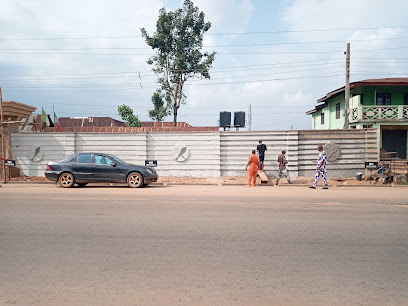
John’s Crown Garden
Explore the serene beauty of John's Crown Garden in Benin City, a perfect park for relaxation and nature appreciation.
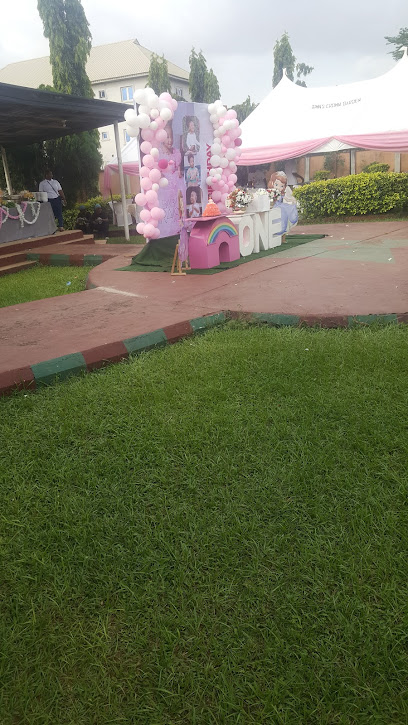
Savealot Fun Park
Experience endless fun and adventure at Savealot Fun Park in Benin City, a family-friendly destination filled with thrilling attractions and local delights.
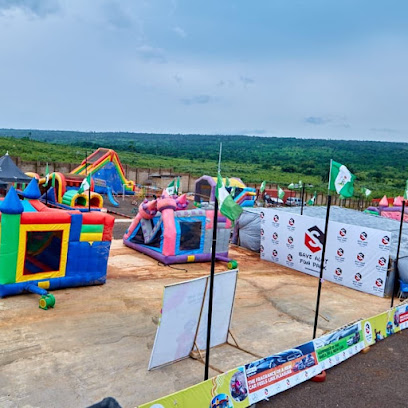
Ontario Park Benin City
Experience the beauty of nature at Ontario Park in Benin City, a perfect retreat for relaxation and outdoor activities amidst lush greenery.
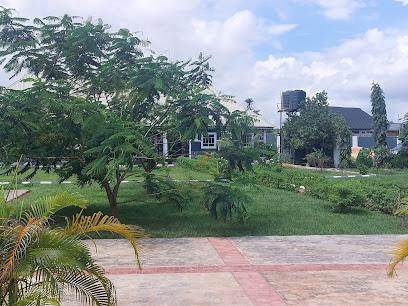
Philip Temile Nature Park And Recreation Center
Experience nature's beauty and family fun at Philip Temile Nature Park and Recreation Center in Benin City, a perfect getaway for relaxation and recreation.
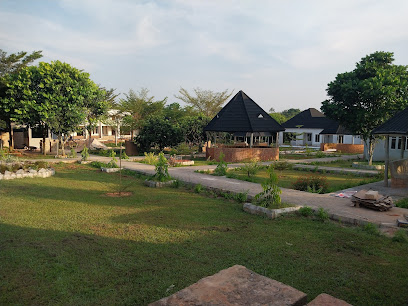
Paul Harris Recreational Park And Garden
Discover tranquility at Paul Harris Recreational Park and Garden in Benin City, a perfect blend of nature, recreation, and community spirit.

SIDERA GARDENS
Experience the vibrant atmosphere of Sidera Gardens in Benin City, a perfect blend of leisure, dining, and entertainment for every visitor.
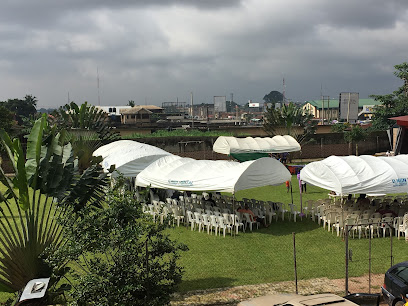
Enogie's Palace
Discover the grandeur of Enogie's Palace in Benin City, a cultural treasure showcasing the rich heritage and traditions of the Edo people.
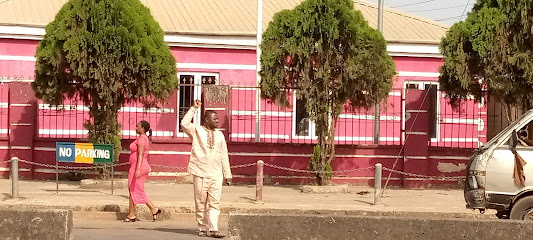
Santua Gardens
Discover tranquility in Santua Gardens, a vibrant oasis in Benin City, where nature and serenity intertwine for a perfect escape.
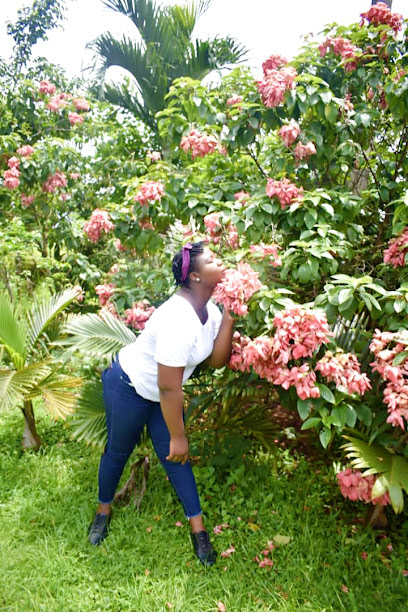
Essential places to dine
GT food plus (New Q)
Experience the vibrant flavors of fast food at GT Food Plus in Benin City, where every meal is crafted for satisfaction.
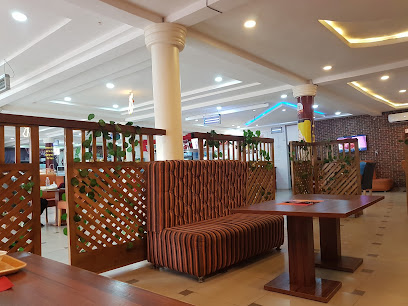
Barcode Station
Discover the flavors of Nigeria at Barcode Station - where local meets international cuisine in an inviting atmosphere.
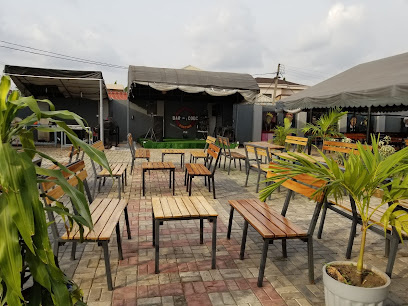
Home & away Restaurant
Experience family-friendly dining at Home & Away Restaurant in Benin City – where authentic flavors meet warm hospitality.
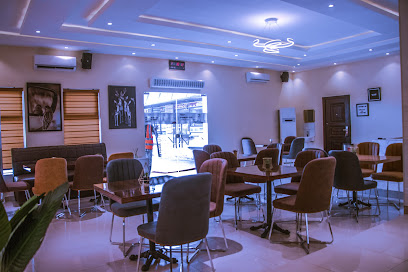
Kateri's Bamboo House (Restaurant)
Discover Kateri's Bamboo House in Benin City for an unforgettable dining experience featuring Chinese, Asian fusion & Indian cuisines.
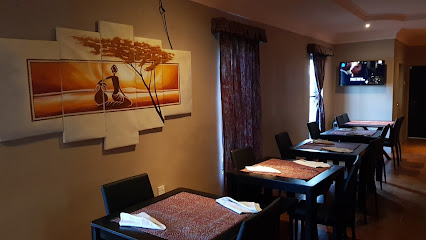
Mama Twins African Kitchen
Discover authentic African flavors at Mama Twins African Kitchen - where every dish tells a story.
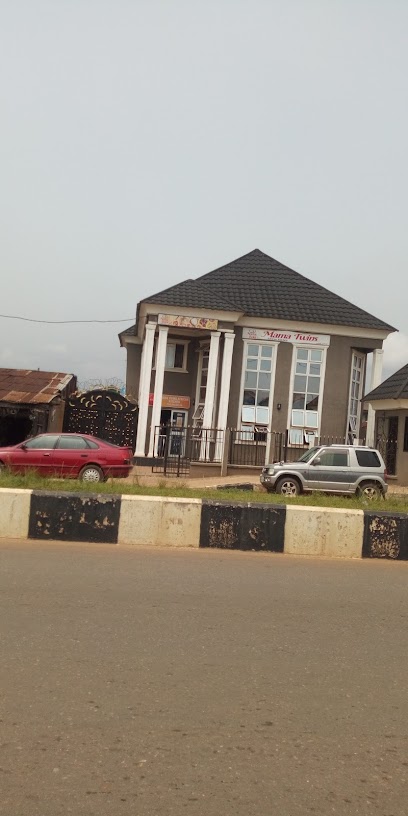
Royal China Restaurant
Experience authentic Chinese cuisine at Royal China Restaurant in Benin City - where tradition meets taste.
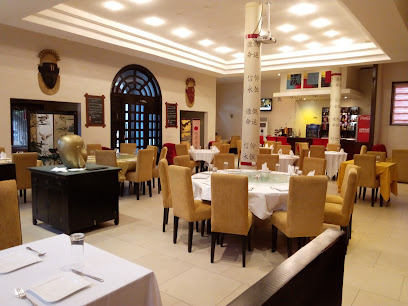
Naira Grill
Discover the rich flavors of Nigeria at Naira Grill in Benin City—where local meets international cuisine in a vibrant setting.
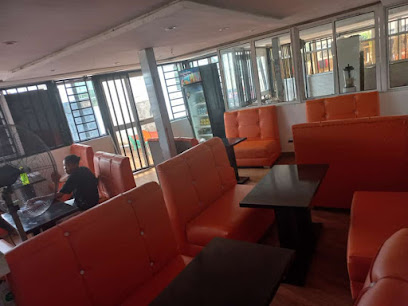
Seven Restaurant Benin
Discover authentic Nigerian flavors at Seven Restaurant Benin – where every dish tells a story.
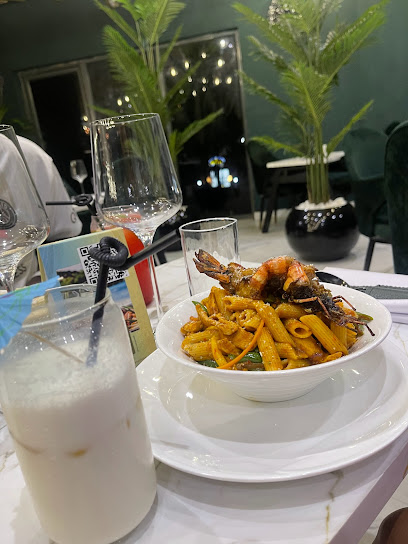
EJ Cuisine
Discover family-friendly dining at EJ Cuisine in Benin City with a diverse menu and welcoming atmosphere perfect for all ages.
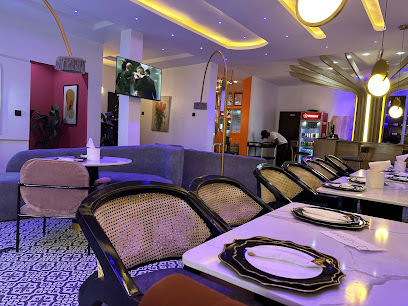
Chillingchow
Discover the vibrant tastes of Nigeria at Chillingchow, where local cuisine meets international flair in Benin City's top dining spot.
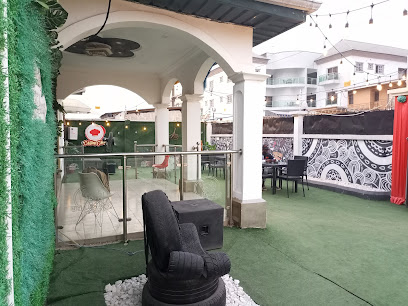
Buka Queen
Experience authentic Nigerian cuisine at Buka Queen in Benin City, where delicious flavors meet warm hospitality.
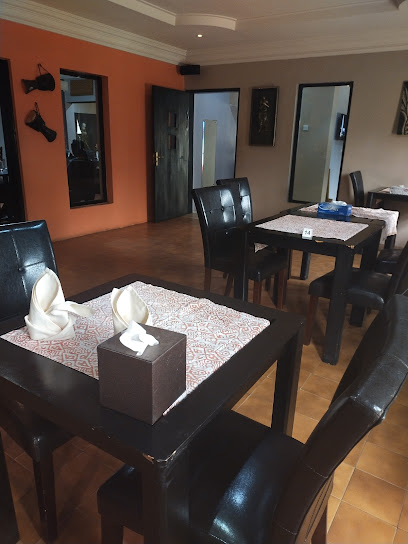
Cue Restaurant
Experience the best breakfast delights at Cue Restaurant in Benin City - where flavor meets hospitality.
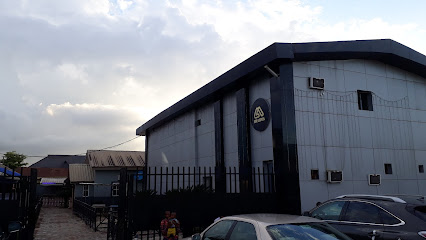
The Experience Restaurant & Bar
Discover delectable local and international cuisines at The Experience Restaurant & Bar in Benin City – where every meal is a celebration.
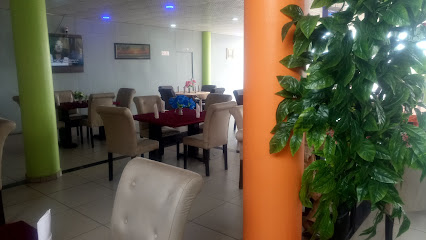
Khayr's Food (Restaurant and Lounge)
Discover the vibrant flavors of Caribbean and international cuisine at Khayr's Food in Benin City - your ultimate dining destination.
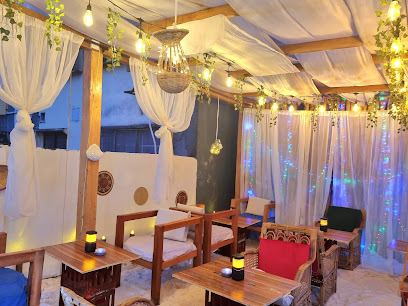
Fly Chef Restaurant
Experience authentic Nigerian flavors at Fly Chef Restaurant in Benin City—perfect for breakfast lovers and fast food fans alike.

Markets, malls and hidden boutiques
Comfort Plaza Benin City
Discover the vibrant shopping and dining experience at Comfort Plaza in Benin City, where local culture meets modern retail.

Cosmos Boutique Africa
Explore the essence of African fashion at Cosmos Boutique Africa, where vibrant styles and local craftsmanship come together in Benin City.
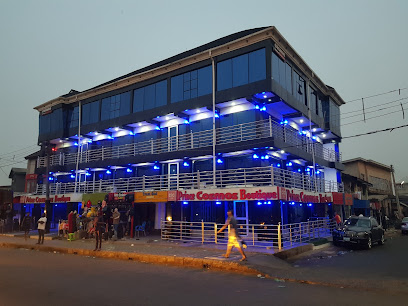
1k Shop
Explore the 1k Shop in Benin City for an authentic shopping experience with affordable prices and a vibrant local atmosphere.
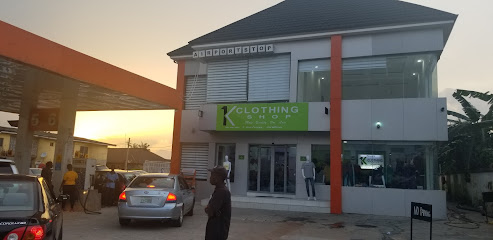
ROOOM XIX Benin City
Explore unique fashion and vibrant styles at ROOOM XIX, the premier clothing store in Benin City, offering a delightful shopping experience.
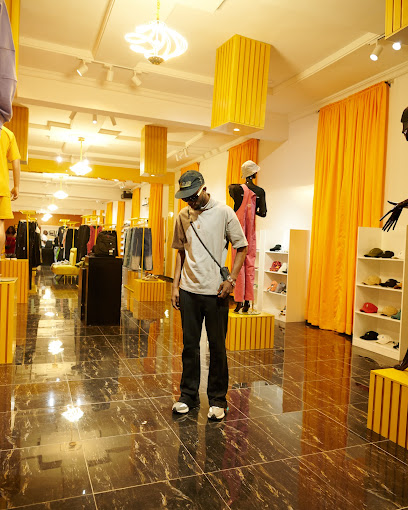
Winners Shopping Complex
Explore the vibrant Winners Shopping Complex in Benin City for a delightful shopping experience filled with local culture and unique finds.
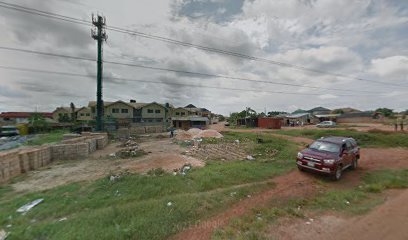
Pearls glamour
Explore Pearls Glamour in Benin City for unique clothing and accessories that celebrate local and contemporary fashion trends.
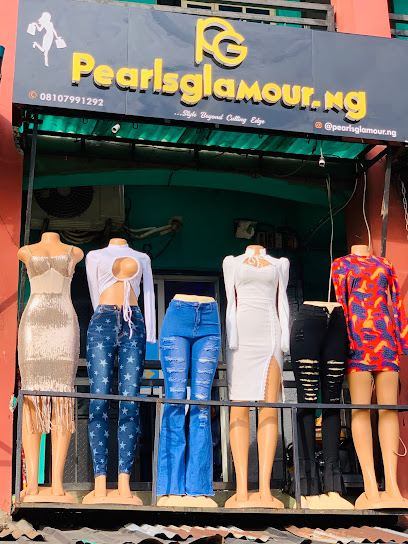
Delight collections
Explore Delight Collections in Benin City for unique fashion and local crafts, celebrating Nigerian artistry in every piece.
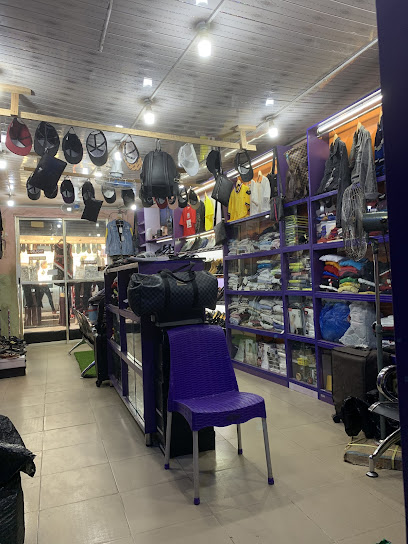
Unique Clothing
Explore Unique Clothing in Benin City for a blend of traditional and modern fashion that showcases local artistry and cultural heritage.
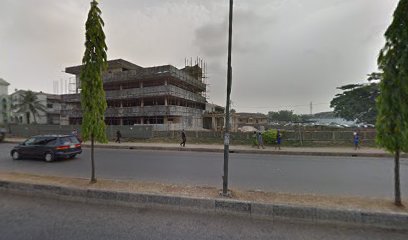
GY CONCEPT SURPRISE AND GIFT SHOP
Explore GY Concept Surprise and Gift Shop for unique gifts and souvenirs that capture the essence of Nigerian culture in Benin City.
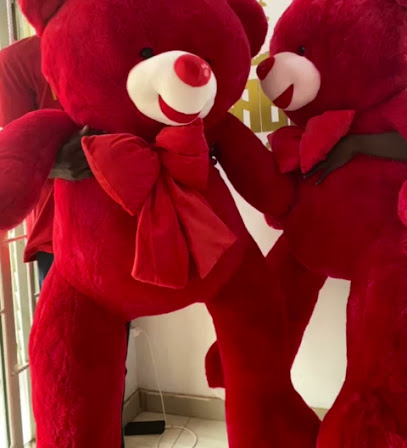
Benin City
Explore the rich history and vibrant culture of Benin City, Nigeria, where tradition meets modernity in a captivating urban experience.
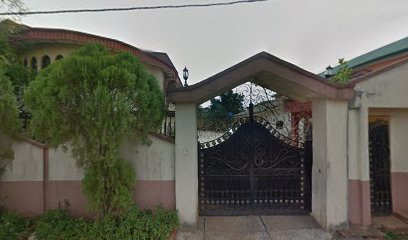
Forever Up Store
Explore a unique shopping experience at Forever Up Store, a boutique in Benin City showcasing local craftsmanship and contemporary fashion.

UNIQUE MARKET NIGERIA
Explore UNIQUE MARKET NIGERIA in Benin City for an unforgettable shopping experience filled with local crafts and modern retail excitement.
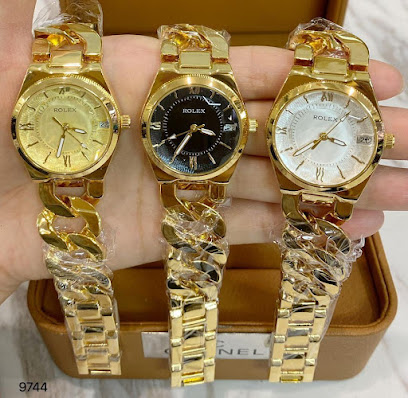
Avia-Samara Men's Boutique & Luxury Store
Discover the pinnacle of men's luxury fashion at Avia-Samara Men's Boutique in Benin City, where style meets sophistication.
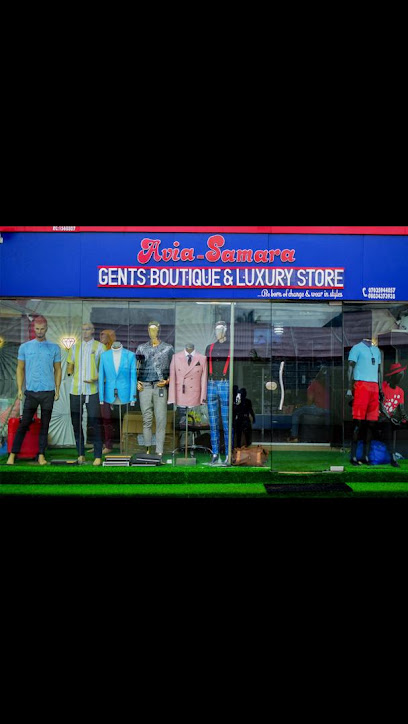
Unibright Stores
Discover Unibright Stores in Benin City for unique gifts, custom apparel, and local treasures that capture the essence of your travels.
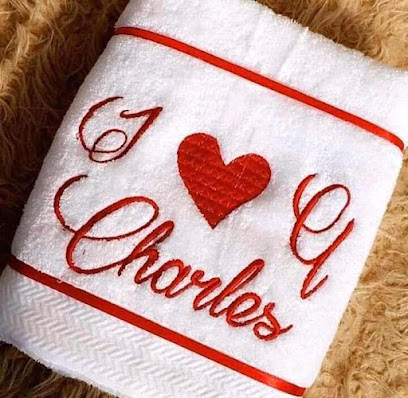
card shop
Explore a charming card shop in Benin City, offering unique cards and home goods that embody local artistry and thoughtful connections.
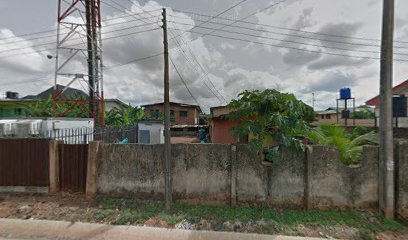
Essential bars & hidden hideouts
Barcode Station
Discover Barcode Station, a lively bar and lounge in Benin City, perfect for unwinding with drinks and local delicacies in a vibrant atmosphere.
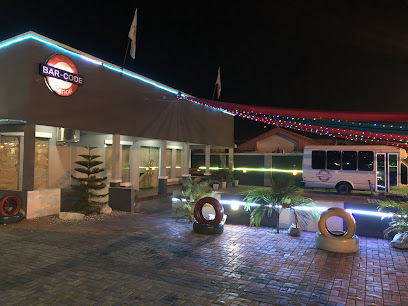
Luciano Bar And Lounge
Experience the vibrant flavors of Benin City at Luciano Bar And Lounge, where grill meets groove in a lively atmosphere.
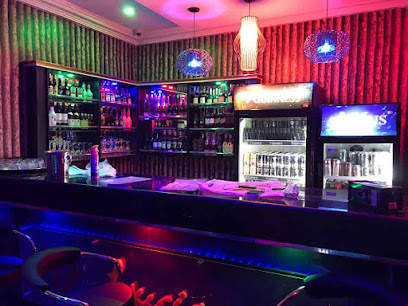
First Bar Bénin
Discover the lively nightlife and local flavors at First Bar Bénin, where every night is filled with music, dance, and delicious cuisine.
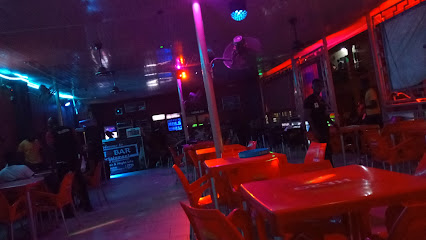
Q5 Lounge
Discover the vibrant ambiance and delightful cuisine at Q5 Lounge, Benin City’s premier destination for relaxation and entertainment.
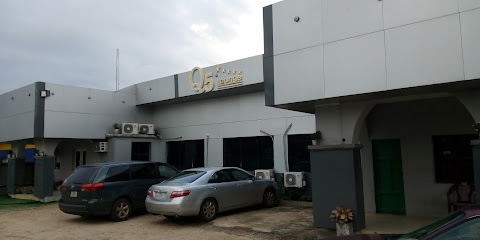
Surprise pub and cafe
Discover the vibrant atmosphere of Surprise Pub and Cafe in Benin City, where local flavors meet lively entertainment for an unforgettable experience.
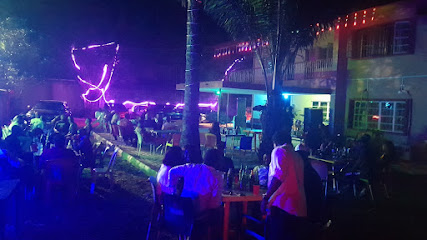
Hideout Bar And Event Centre
Discover the vibrant culinary scene at Hideout Bar And Event Centre, where grilled delights and exotic drinks await in Benin City.
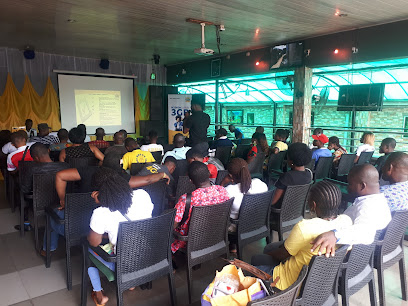
SB Bar
Discover the lively nightlife at SB Bar in Benin City, where live music and affordable drinks create an unforgettable experience.
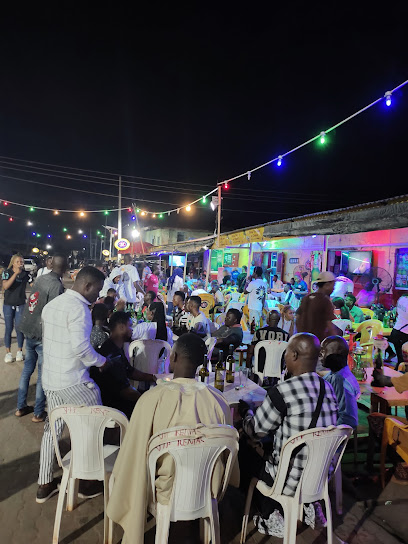
Tastes
Discover the flavors of Benin City at Tastes, a grill restaurant offering a vibrant atmosphere and delicious local cuisine.
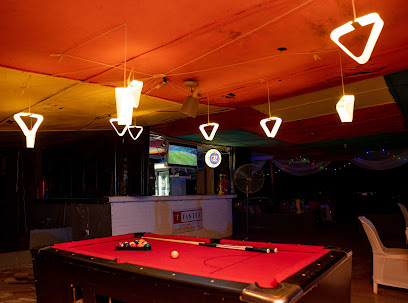
Versus Lounge
Experience the vibrant nightlife of Benin City at Versus Lounge, where great drinks and an inviting atmosphere await you.
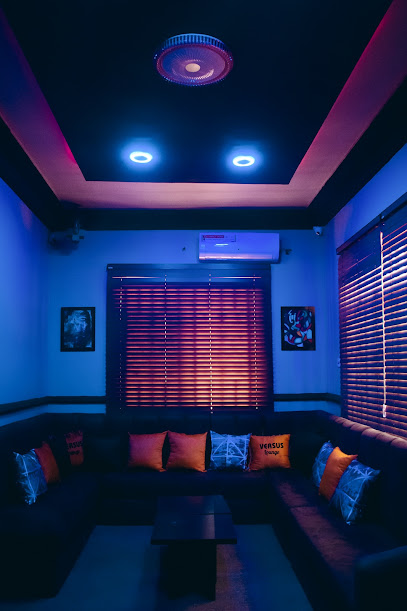
H2 Lounge & Bar Ltd
Experience the vibrant nightlife and delicious cuisine at H2 Lounge & Bar Ltd in Benin City, where relaxation meets entertainment.
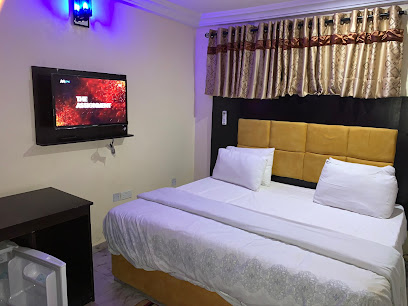
Sam's Penthouse Africa Lounge and Bar
Unwind at Sam's Penthouse Africa Lounge and Bar - a vibrant gem in Benin City offering delightful drinks and a lively atmosphere.
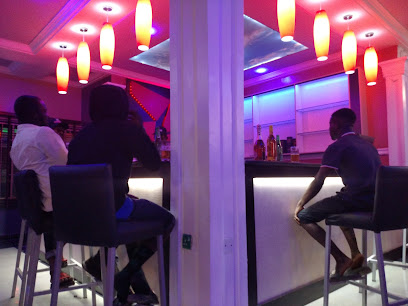
Lady D Bar Benin City
Discover the vibrant nightlife of Benin City at Lady D Bar, where local culture meets refreshing drinks in a cozy atmosphere.

Hookah Dot Bar/Club
Discover the vibrant nightlife at Hookah Dot Bar/Club in Benin City, where flavors and fun come together for an unforgettable experience.
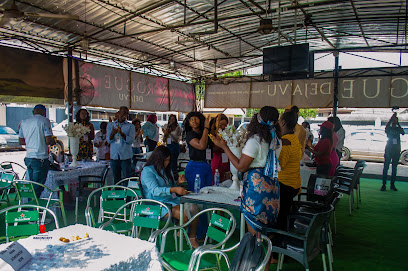
Heineken bar
Experience the vibrant nightlife at Heineken Bar in Benin City. Enjoy delicious grilled dishes and refreshing drinks in a lively atmosphere.
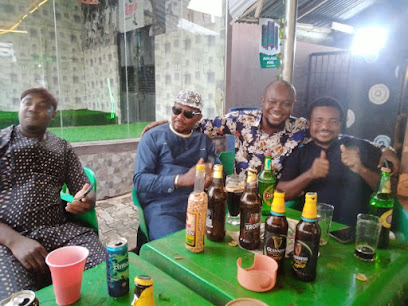
Local Phrases
-
- HelloEkaaro
[eh-kah-ah-roh] - GoodbyeOdabo
[oh-dah-boh] - YesBẹẹni
[beh-eh-nee] - NoBẹẹkọ
[beh-eh-koh] - Please/You're welcomeẸ dáà
[eh dah-ah] - Thank youOse
[oh-seh] - Excuse me/SorryE ma binu
[eh mah bee-noo] - How are you?Bawo ni?
[bah-woh nee] - Fine. And you?Daadaa. Ni nko?
[dah-dah. nee en-koh] - Do you speak English?Ṣe o mọ èdè yi?
[sheh oh moh eh-deh yee] - I don't understandKò náa rẹ
[koh nah-ah reh]
- HelloEkaaro
-
- I'd like to see the menu, pleaseMaa fẹran làfurẹ, jọwọ
[mah feh-rah la-foo-reh, joh-woh] - I don't eat meatMaa kọ ẹran
[mah koh eh-rahn] - Cheers!Gbọdọ
[gboh-doh] - I would like to pay, pleaseMaa fẹran sọ, jọwọ
[mah feh-rah soh, joh-woh]
- I'd like to see the menu, pleaseMaa fẹran làfurẹ, jọwọ
-
- Help!Ọrọ!
[oh-roh] - Go away!Lọ sọ
[loh soh] - Call the Police!Wọ ilẹẹsi
[woh ee-leh-eh-see] - Call a doctor!Wọ dokita
[woh doh-kee-tah] - I'm lostMo jẹ lọ
[moh jeh loh] - I'm illMo jẹ ọjọ
[moh jeh oh-jo]
- Help!Ọrọ!
-
- I'd like to buy...Maa fẹran ra...
[mah feh-rah rah] - I'm just lookingMaa n sọ
[mah en soh] - How much is it?Ẹ pe lọ?
[eh peh loh] - That's too expensiveYẹn lọsọ
[yehn loh-soh] - Can you lower the price?Ṣe ọ le kọọ iwe rẹ?
[sheh oh leh koh-koh ee-weh reh]
- I'd like to buy...Maa fẹran ra...
-
- What time is it?Kini ọkan?
[kee-nee oh-kahn] - It's one o'clockỌkan lẹhin
[oh-kahn leh-heen] - Half past (10)Aabọ lẹhin (10)
[ah-boh leh-heen] - MorningỌsan
[oh-sahn] - AfternoonỌjọrọ
[oh-joh-roh] - EveningỌsẹ
[oh-seh] - YesterdayAibọ
[ah-ee-boh] - TodayỌn
[ohn] - TomorrowỌla
[oh-lah] - 1Okan
[oh-kahn] - 2Meji
[meh-jee] - 3Mẹta
[meh-tah] - 4Merin
[meh-reen] - 5Marun
[mah-roon] - 6Meefa
[meh-fah] - 7Meje
[meh-jeh] - 8Mejo
[meh-joh] - 9Meje
[meh-jeh] - 10Mẹwa
[meh-wah]
- What time is it?Kini ọkan?
-
- Where's a/the...?Nibo ni ...?
[nee-boh nee] - What's the address?Kini adirẹsi?
[kee-nee ah-dee-reh-see] - Can you show me (on the map)?Ṣe ọ le mu mi (ni iwe)?
[sheh oh leh moo mee nee ee-weh] - When's the next (bus)?Nibo lẹhin ti o n jẹkọ?
[nee-boh leh-heen tee oh en jeh-koh] - A ticket (to ....)Ọfẹ (si ....)
[oh-feh see]
- Where's a/the...?Nibo ni ...?
History of Benin City
-
Benin City, the capital of Edo State in southern Nigeria, traces its origins back to the 10th century AD. It was originally known as 'Igodomigodo' and was inhabited by the Edo people. The city became the seat of the mighty Benin Empire, which was among the most advanced and developed civilizations in pre-colonial Africa.
-
The 15th and 16th centuries marked the golden age of the Benin Empire. Under the rule of Oba Ewuare the Great, the empire expanded its borders through military conquest and strategic alliances. During this period, Benin City became renowned for its sophisticated urban planning, impressive architecture, including the famous Benin Moats, and its thriving arts and crafts industry, particularly bronze casting.
-
Benin City is globally acclaimed for its extraordinary bronzes, ivories, and wood carvings. These artifacts were created using the lost-wax casting technique and depict various aspects of Benin life, including royal figures, warriors, and deities. The Benin Bronzes, in particular, are considered masterpieces of African art and are held in high regard in museums around the world.
-
A pivotal moment in the history of Benin City was the British Punitive Expedition of 1897. In retaliation for the ambush of a British delegation, British forces invaded and captured Benin City. They looted thousands of artifacts, including the famed Benin Bronzes, and exiled Oba Ovonramwen. This event marked the end of the Benin Empire's sovereignty and its incorporation into British colonial rule.
-
Following Nigeria's independence in 1960, Benin City evolved into a modern urban center while retaining its rich cultural heritage. It became the capital of the newly created Edo State in 1991. Today, Benin City is a vibrant metropolis known for its historical sites, cultural festivals such as the Igue Festival, and educational institutions like the University of Benin.
-
One of the most remarkable features of ancient Benin City was its extensive network of moats and walls, known as the Benin Moats. Constructed between the 13th and 15th centuries, these fortifications were designed for defense and demarcation. The walls, which once encircled the city, are considered one of the largest man-made structures in the world, rivaling the Great Wall of China in grandeur.
-
The Igue Festival is a significant cultural event in Benin City, celebrated annually to mark the end of the Edo year and the start of a new one. It is a time for thanksgiving, purification, and renewal. The festival features elaborate ceremonies, traditional dances, and offerings to the ancestors and deities. The Oba of Benin plays a central role in the festivities, reinforcing the cultural continuity of the Edo people.
Benin City Essentials
-
Benin City is accessible via the Benin City Airport (BNI), which has domestic flights from major cities like Lagos and Abuja. International travelers can connect through these cities. Alternatively, you can take a bus or hire a private car from neighboring states. Roads leading to Benin City are well-maintained, making road travel a viable option.
-
Within Benin City, you can use taxis, buses, and motorbikes (okada) for local transportation. Taxis are relatively affordable and can be found throughout the city. Buses operate on fixed routes and are a cost-effective option, though they can be crowded. For short distances, motorbikes are convenient but make sure to negotiate the fare before the ride. Ride-sharing services like Uber are also available.
-
The official currency is the Nigerian Naira (NGN). Credit and debit cards are widely accepted in hotels, restaurants, and larger stores, but it's always good to have some cash on hand for smaller establishments, markets, and transportation. ATMs are readily available in the city, but it's advisable to use those located in secure areas such as banks and shopping malls.
-
Benin City is generally safe for tourists, but it's crucial to take standard precautions. Avoid walking alone at night, especially in poorly lit areas. Neighborhoods like Upper Sakponba and parts of Ikpoba Hill have higher crime rates, so it's best to avoid these areas, especially after dark. Keep your valuables secure and be cautious of pickpockets in crowded places.
-
In case of an emergency, dial 112 for immediate assistance. The University of Benin Teaching Hospital offers comprehensive medical services. Pharmacies are plentiful and well-stocked for minor health issues. It's also recommended to have travel insurance that covers medical emergencies. For police assistance, you can visit the nearest police station or call their emergency number.
-
Fashion: Do dress modestly, especially when visiting religious or traditional sites. Avoid wearing overly revealing clothing. Religion: Do respect local customs and traditions. When visiting religious sites, dress conservatively and be quiet and respectful. Public Transport: Do negotiate fares before boarding a taxi or motorbike. Don’t argue over fares publicly. Greetings: Do greet people with a handshake. It's polite to ask about someone's well-being before getting to the point. Eating & Drinking: Do try local dishes like 'pounded yam' and 'egusi soup'. Don’t refuse food or drink offerings as it may be considered rude.
-
To experience Benin City like a local, visit local markets like Oba Market for fresh produce and handicrafts. Engage with locals, who are often friendly and willing to share stories. Don't miss the National Museum and the Royal Palace of the Oba of Benin for a deep dive into the city's rich history. Try to attend a traditional festival if your visit coincides with one; they offer a unique cultural experience.
Trending Landmark in Benin City
-
Filmhouse Cinemas Benin
-
Kada Plaza Cinema & Entertainment Centre
-
Benin City Airport
-
National Museum Benin City
-
Ogba Zoo, Benin City.
-
Alims Concept
-
Oba Palace
-
ekiosa market
-
St Paul Catholic Church Benin City
-
VICE CITY
-
Kateri's Bamboo House (Restaurant)
-
Benin Central Park
-
The Tavern Benin City
-
Christ Embassy Erediauwa Benin City
-
Uyi Grand Marquee
Nearby Cities to Benin City
-
Things To Do in Warri
-
Things To Do in Asaba
-
Things To Do in Onitsha
-
Things To Do in Owerri
-
Things To Do in Enugu
-
Things To Do in Ibadan
-
Things To Do in Port Harcourt
-
Things To Do in Lagos
-
Things To Do in Abeokuta
-
Things To Do in Uyo
-
Things To Do in Porto-Novo
-
Things To Do in Calabar
-
Things To Do in Cotonou
-
Things To Do in Abuja
-
Things To Do in Ouidah








